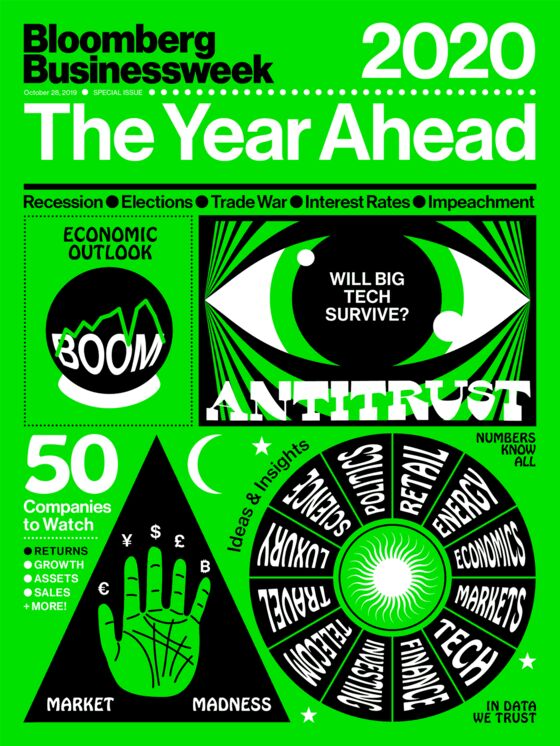The Big Money in Startups Comes From Investing Before the IPO
The Big Money in Startups Comes From Investing Before the IPO
(Bloomberg Businessweek) -- In January, WeWork—the real estate rental company that captured Silicon Valley’s attention with its hip, well-appointed co-working spaces—raised $1 billion in what it thought would be its final funding round before going public. Now those ambitions lie in tatters, after the money-burning company was forced to oust its founder and chief executive officer and seek new financing.
That’s a cautionary tale for anyone who’s thinking of putting money into a private company—the IPO may not be the payday investors hope for. But private investing still holds a mystique. As the WeWork drama unfolded in early October, about 50 people gathered one evening in the heart of San Francisco’s financial district to learn how they could get in on backing private startups.
Budding hedge fund managers, cryptocurrency traders, and family office representatives got tips on how to edge into late-stage venture capital rounds and snap up shares in side deals with startup employees and other insiders. The event was organized by Farvahar Partners, a merchant bank created recently to advise on such transactions. “If you want access to this stuff, you can get it,” Joe Voboril, a former-hedge fund manager who’s now a Farvahar managing partner, told the group.

“The overall level of interest in doing investments ahead of IPOs is insane—it’s through the roof,” says Andrea Walne, a partner at Manhattan Venture Partners LLC, which focuses on this market. “People feel as though they can lock in the same value as the VCs they admire and respect.” Her business card reads “Tomorrow’s IPOs Today,” with a trademark symbol above the phrase.
Promoters of private investing say the new IPO is the FPO—the final private offering. Even big mutual fund companies including BlackRock, Fidelity, T. Rowe Price, and Wellington have embraced private investments. So far this year, 27% of VC rounds that raised more than $100 million had at least one such “crossover” investor normally focused on public markets. That’s up from 13% in 2017, according to Silicon Valley Bank. “The pace of opportunities has increased in recent years,” says Tom Watson, director of equity research for North America at T. Rowe Price. The fund company has invested in 15 privately held startups in 2019, compared with 10 for all of 2013, according to PitchBook data. Hedge funds, sovereign wealth funds, and family offices have also piled in.
Getting in before an IPO helps a big investor build a large stake more easily. In a traditional IPO, companies often sell a limited amount of stock and investment banks decide who gets it. “That can leave an investor with not much of a stake—not enough to move the needle at big funds,” says Bob Blee, head of corporate finance at Silicon Valley Bank.
Individuals are increasingly trying to get in early, too. Walne has seen more interest this year from engineers and executives in the tech industry. They pool their money into special purpose vehicles, which often buy stock from startup insiders and then sit on the roster of official shareholders alongside VC firms and other backers.
Farvahar’s Voboril believes FPOs represent a structural change in capital markets. Some private rounds are so big, they upend the IPOs that follow—many of the investors who would have clamored for an IPO allocation are more likely to already own stakes these days. These forces were at play in some of 2019’s biggest stock market debuts. Uber Technologies Inc. raised billions of dollars in private financing from backers including BlackRock, Fidelity, and Wellington. Since the IPO in May, the shares have slumped about 30%. Lyft, Peloton, and SmileDirectClub also won big backers in private transactions, only to see their shares drop after IPOs.
That’s bad news for the investment banks organizing these IPOs, and for anyone who bought in on the first day. But investors who got in during private rounds may still be up. At the event in San Francisco, Voboril showed a slide of some of the worst-performing recent IPOs. The average loss was 32% since those public market debuts, but investors in final private offerings generated an average return of 34%.
Not every private investment pays off quickly. Airbnb Inc., which may be the next big tech startup to go public, has raised billions of dollars, including from crossover investors. Its private valuation of about $31 billion has barely budged from a funding round in 2016.
Airbnb may be an example of another way private investment is changing IPOs. The home-sharing company is considering a direct listing, Bloomberg News has reported. Companies that list directly don’t raise new money—they allow founders and early investors to start selling their shares on public markets. Spotify Technology SA and Slack Technologies Inc. have already gone public this way. With companies able to tap deeper private markets when they want to raise cash, traditional IPOs have grown less important.

What about WeWork? Some investors count it as an outlier among private companies. “Are some priced for future perfection? Yes,” Blee says. “But that’s not indicative of what’s going on in the ecosystem broadly.” Low bond yields will keep investors looking for better growth in the tech sector, he and others believe. And a long-term decline in the number of public companies will keep pushing institutions into private markets.
Still, valuations are high, and WeWork appears to be a vivid example of how unmoored they can get without the day-to-day scrutiny of public investors. If the IPO is passé, and the FPO is the new IPO, perhaps the really connected investors are already moving on to another step earlier in the game—call it the penultimate private offering. Ready for the PUPO?
Read more: Unprofitable Companies Are Raising the Most IPO Cash Since the Dot-Com Era
To contact the editor responsible for this story: Pat Regnier at pregnier3@bloomberg.net
©2019 Bloomberg L.P.